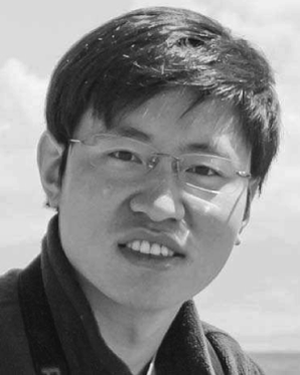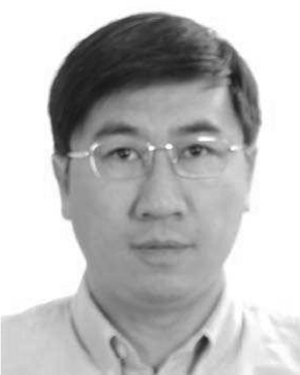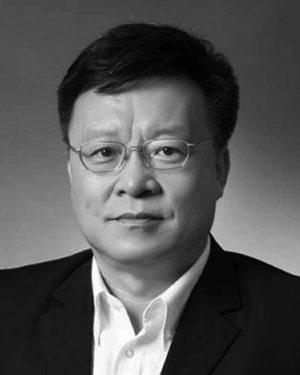Abstract:
Incorporating image classification into image retrieval system brings many attractive advantages. For instance, the search space can be narrowed down by rejecting images ...Show MoreMetadata
Abstract:
Incorporating image classification into image retrieval system brings many attractive advantages. For instance, the search space can be narrowed down by rejecting images in irrelevant categories of the query. The retrieved images can be more consistent in semantics by indexing and returning images in the relevant categories together. However, due to their different goals on recognition accuracy and retrieval scalability, it is hard to efficiently incorporate most image classification works into large-scale image search. To study this problem, we propose cascade category-aware visual search, which utilizes weak category clue to achieve better retrieval accuracy, efficiency, and memory consumption. To capture the category and visual clues of an image, we first learn category-visual words, which are discriminative and repeatable local features labeled with categories. By identifying category-visual words in database images, we are able to discard noisy local features and extract image visual and category clues, which are hence recorded in a hierarchical index structure. Our retrieval system narrows down the search space by: 1) filtering the noisy local features in query; 2) rejecting irrelevant categories in database; and 3) preforming discriminative visual search in relevant categories. The proposed algorithm is tested on object search, landmark search, and large-scale similar image search on the large-scale LSVRC10 data set. Although the category clue introduced is weak, our algorithm still shows substantial advantages in retrieval accuracy, efficiency, and memory consumption than the state-of-the-art.
Published in: IEEE Transactions on Image Processing ( Volume: 23, Issue: 6, June 2014)
Funding Agency:

Department of Computer Science, University of Texas at San Antonio, San Antonio, TX, USA
Shiliang Zhang received the Ph.D. degree in computer science from the Institute of Computing Technology, Chinese Academy of Sciences, Beijing, China, in 2012. He was a Visiting Researcher with the Media Analysis Group, NEC Laboratories America, Cupertino, CA, USA. He is currently a Post-Doctoral Research Fellow with the Department of Computer Science, University of Texas at San Antonio, San Antonio, TX, USA.
Dr. Zhang's re...Show More
Shiliang Zhang received the Ph.D. degree in computer science from the Institute of Computing Technology, Chinese Academy of Sciences, Beijing, China, in 2012. He was a Visiting Researcher with the Media Analysis Group, NEC Laboratories America, Cupertino, CA, USA. He is currently a Post-Doctoral Research Fellow with the Department of Computer Science, University of Texas at San Antonio, San Antonio, TX, USA.
Dr. Zhang's re...View more

Department of Computer Science, University of Texas at San Antonio, San Antonio, TX, USA
Qi Tian (M'96–SM'03) received the B.E. degree in electronic engineering from Tsinghua University, Beijing, China, in 1992, the M.S. degree in electrical and computer engineering from Drexel University, Philadelphia, PA, USA, in 1996, and the Ph.D. degree in electrical and computer engineering from the University of Illinois at Urbana-Champaign, Champaign, IL, USA, in 2002. He is currently a Professor with the Department o...Show More
Qi Tian (M'96–SM'03) received the B.E. degree in electronic engineering from Tsinghua University, Beijing, China, in 1992, the M.S. degree in electrical and computer engineering from Drexel University, Philadelphia, PA, USA, in 1996, and the Ph.D. degree in electrical and computer engineering from the University of Illinois at Urbana-Champaign, Champaign, IL, USA, in 2002. He is currently a Professor with the Department o...View more

Graduate University of Chinese Academy of Sciences, Beijing, China
Qingming Huang (M'04–SM'08) received the Ph.D. degree in computer science from the Harbin Institute of Technology, Harbin, China, in 1994.
He was a Post-Doctoral Fellow with the National University of Singapore, Singapore, from 1995 to 1996, and was with the Institute for Infocomm Research, Singapore, as a Research Staff Member, from 1996 to 2002. He joined the Chinese Academy of Sciences, Beijing, China, under Science100 ...Show More
Qingming Huang (M'04–SM'08) received the Ph.D. degree in computer science from the Harbin Institute of Technology, Harbin, China, in 1994.
He was a Post-Doctoral Fellow with the National University of Singapore, Singapore, from 1995 to 1996, and was with the Institute for Infocomm Research, Singapore, as a Research Staff Member, from 1996 to 2002. He joined the Chinese Academy of Sciences, Beijing, China, under Science100 ...View more

School of Electronic Engineering and Computer Science, Peking University, Beijing, China
Wen Gao (M'92–SM'05–F'08) received the M.S. and Ph.D. degrees in computer science from the Harbin Institute of Technology, Harbin, China, in 1985 and 1988, respectively, and the Ph.D. degree in electronics engineering from the University of Tokyo, Tokyo, Japan, in 1991.
He was a Research Fellow with the Institute of Medical Electronics Engineering, University of Tokyo, in 1992, and a Visiting Professor with the Robotics In...Show More
Wen Gao (M'92–SM'05–F'08) received the M.S. and Ph.D. degrees in computer science from the Harbin Institute of Technology, Harbin, China, in 1985 and 1988, respectively, and the Ph.D. degree in electronics engineering from the University of Tokyo, Tokyo, Japan, in 1991.
He was a Research Fellow with the Institute of Medical Electronics Engineering, University of Tokyo, in 1992, and a Visiting Professor with the Robotics In...View more

Microsoft Research Asia, Beijing, China
Yong Rui (F'10) received the B.S. degree from Southeast University, Nanjing, China, the M.S. degree from Tsinghua University, Beijing, China, and the Ph.D. degree from the University of Illinois at Urbana-Champaign, Champaign, IL, USA. He is currently a Senior Director with Microsoft Research Asia, Beijing.
Dr. Rui is a fellow of the International Association for Pattern Recognition and the International Society of Optics ...Show More
Yong Rui (F'10) received the B.S. degree from Southeast University, Nanjing, China, the M.S. degree from Tsinghua University, Beijing, China, and the Ph.D. degree from the University of Illinois at Urbana-Champaign, Champaign, IL, USA. He is currently a Senior Director with Microsoft Research Asia, Beijing.
Dr. Rui is a fellow of the International Association for Pattern Recognition and the International Society of Optics ...View more

Department of Computer Science, University of Texas at San Antonio, San Antonio, TX, USA
Shiliang Zhang received the Ph.D. degree in computer science from the Institute of Computing Technology, Chinese Academy of Sciences, Beijing, China, in 2012. He was a Visiting Researcher with the Media Analysis Group, NEC Laboratories America, Cupertino, CA, USA. He is currently a Post-Doctoral Research Fellow with the Department of Computer Science, University of Texas at San Antonio, San Antonio, TX, USA.
Dr. Zhang's research interests include large-scale image and video retrieval and multimedia content affective analysis. He was a recipient of the CCF Excellent Doctoral Dissertation from the China Computer Federation, the Outstanding Doctoral Dissertation Award from the Chinese Academy of Sciences, the President Scholarship from the Chinese Academy of Sciences, the ACM Multimedia Student Travel Grants, and the Microsoft Research Asia Fellowship in 2010. He has authored and co-authored over 20 papers in journals and conferences, including the IEEE TRANSACTIONS ON IMAGE PROCESSING, the IEEE TRANSACTIONS ON MULTIMEDIA, COMPUTER VISION AND IMAGE UNDERSTANDING, the IEEE JOURNAL ON EMERGING AND SELECTED TOPICS IN CIRCUITS AND SYSTEMS, ACM Multimedia, and the International Conference on Computer Vision. He was a recipient of the Top 10% Paper Award at the IEEE Multimedia Signal Processing in 2011.
Shiliang Zhang received the Ph.D. degree in computer science from the Institute of Computing Technology, Chinese Academy of Sciences, Beijing, China, in 2012. He was a Visiting Researcher with the Media Analysis Group, NEC Laboratories America, Cupertino, CA, USA. He is currently a Post-Doctoral Research Fellow with the Department of Computer Science, University of Texas at San Antonio, San Antonio, TX, USA.
Dr. Zhang's research interests include large-scale image and video retrieval and multimedia content affective analysis. He was a recipient of the CCF Excellent Doctoral Dissertation from the China Computer Federation, the Outstanding Doctoral Dissertation Award from the Chinese Academy of Sciences, the President Scholarship from the Chinese Academy of Sciences, the ACM Multimedia Student Travel Grants, and the Microsoft Research Asia Fellowship in 2010. He has authored and co-authored over 20 papers in journals and conferences, including the IEEE TRANSACTIONS ON IMAGE PROCESSING, the IEEE TRANSACTIONS ON MULTIMEDIA, COMPUTER VISION AND IMAGE UNDERSTANDING, the IEEE JOURNAL ON EMERGING AND SELECTED TOPICS IN CIRCUITS AND SYSTEMS, ACM Multimedia, and the International Conference on Computer Vision. He was a recipient of the Top 10% Paper Award at the IEEE Multimedia Signal Processing in 2011.View more

Department of Computer Science, University of Texas at San Antonio, San Antonio, TX, USA
Qi Tian (M'96–SM'03) received the B.E. degree in electronic engineering from Tsinghua University, Beijing, China, in 1992, the M.S. degree in electrical and computer engineering from Drexel University, Philadelphia, PA, USA, in 1996, and the Ph.D. degree in electrical and computer engineering from the University of Illinois at Urbana-Champaign, Champaign, IL, USA, in 2002. He is currently a Professor with the Department of Computer Science, University of Texas at San Antonio (UTSA), San Antonio, TX, USA. He took one-year faculty leave at Microsoft Research Asia, Beijing, from 2008 to 2009.
Dr. Tian's research interests include multimedia information retrieval and computer vision. He has authored over 210 refereed journal and conference papers. He received faculty research awards from Google, NEC Laboratories of America, FXPAL, Akiira Media Systems, and HP Labs. He was a recipient of the Best Paper Awards at the 2013 Pacific-Rim Conference on Multimedia (PCM), the 2013 International Workshop on Multimedia Signal Processing (MMSP), and the 2012 International Conference on Internet Multimedia Computing and Service, the Top 10% Paper Award at 2011 MMSP, the Best Student Paper at the 2006 IEEE International Conference on Acoustics, Speech, and Signal Processing, the Best Paper Candidate at 2007 PCM, and the 2010 ACM Service Award. He is the Guest Editor of the IEEE TRANSACTIONS ON MULTIMEDIA, Journal of Computer Vision and Image Understanding, Pattern Recognition Letter, EURASIP Journal on Advances in Signal Processing, and Journal of Visual Communication and Image Representation, and is on the Editorial Board of the IEEE TRANSACTIONS ON CIRCUIT AND SYSTEMS FOR VIDEO TECHNOLOGY, Multimedia Systems Journal, Journal of Multimedia, and Journal of Machine Visions and Applications.
Qi Tian (M'96–SM'03) received the B.E. degree in electronic engineering from Tsinghua University, Beijing, China, in 1992, the M.S. degree in electrical and computer engineering from Drexel University, Philadelphia, PA, USA, in 1996, and the Ph.D. degree in electrical and computer engineering from the University of Illinois at Urbana-Champaign, Champaign, IL, USA, in 2002. He is currently a Professor with the Department of Computer Science, University of Texas at San Antonio (UTSA), San Antonio, TX, USA. He took one-year faculty leave at Microsoft Research Asia, Beijing, from 2008 to 2009.
Dr. Tian's research interests include multimedia information retrieval and computer vision. He has authored over 210 refereed journal and conference papers. He received faculty research awards from Google, NEC Laboratories of America, FXPAL, Akiira Media Systems, and HP Labs. He was a recipient of the Best Paper Awards at the 2013 Pacific-Rim Conference on Multimedia (PCM), the 2013 International Workshop on Multimedia Signal Processing (MMSP), and the 2012 International Conference on Internet Multimedia Computing and Service, the Top 10% Paper Award at 2011 MMSP, the Best Student Paper at the 2006 IEEE International Conference on Acoustics, Speech, and Signal Processing, the Best Paper Candidate at 2007 PCM, and the 2010 ACM Service Award. He is the Guest Editor of the IEEE TRANSACTIONS ON MULTIMEDIA, Journal of Computer Vision and Image Understanding, Pattern Recognition Letter, EURASIP Journal on Advances in Signal Processing, and Journal of Visual Communication and Image Representation, and is on the Editorial Board of the IEEE TRANSACTIONS ON CIRCUIT AND SYSTEMS FOR VIDEO TECHNOLOGY, Multimedia Systems Journal, Journal of Multimedia, and Journal of Machine Visions and Applications.View more

Graduate University of Chinese Academy of Sciences, Beijing, China
Qingming Huang (M'04–SM'08) received the Ph.D. degree in computer science from the Harbin Institute of Technology, Harbin, China, in 1994.
He was a Post-Doctoral Fellow with the National University of Singapore, Singapore, from 1995 to 1996, and was with the Institute for Infocomm Research, Singapore, as a Research Staff Member, from 1996 to 2002. He joined the Chinese Academy of Sciences, Beijing, China, under Science100 Talent Plan in 2003, and is currently a Professor with the Graduate University of Chinese Academy of Sciences, Beijing. His current research areas are image and video analysis, video coding, pattern recognition, and computer vision.
Qingming Huang (M'04–SM'08) received the Ph.D. degree in computer science from the Harbin Institute of Technology, Harbin, China, in 1994.
He was a Post-Doctoral Fellow with the National University of Singapore, Singapore, from 1995 to 1996, and was with the Institute for Infocomm Research, Singapore, as a Research Staff Member, from 1996 to 2002. He joined the Chinese Academy of Sciences, Beijing, China, under Science100 Talent Plan in 2003, and is currently a Professor with the Graduate University of Chinese Academy of Sciences, Beijing. His current research areas are image and video analysis, video coding, pattern recognition, and computer vision.View more

School of Electronic Engineering and Computer Science, Peking University, Beijing, China
Wen Gao (M'92–SM'05–F'08) received the M.S. and Ph.D. degrees in computer science from the Harbin Institute of Technology, Harbin, China, in 1985 and 1988, respectively, and the Ph.D. degree in electronics engineering from the University of Tokyo, Tokyo, Japan, in 1991.
He was a Research Fellow with the Institute of Medical Electronics Engineering, University of Tokyo, in 1992, and a Visiting Professor with the Robotics Institute, Carnegie Mellon University, Pittsburgh, PA, USA, in 1993. From 1994 to 1995, he was a Visiting Professor with the AI Laboratory, Massachusetts Institute of Technology, Cambridge, MA, USA. He is currently a Professor with the School of Electronic Engineering and Computer Science, Peking University, Beijing, China, and a Professor of Computer Science with the Harbin Institute of Technology.
Wen Gao (M'92–SM'05–F'08) received the M.S. and Ph.D. degrees in computer science from the Harbin Institute of Technology, Harbin, China, in 1985 and 1988, respectively, and the Ph.D. degree in electronics engineering from the University of Tokyo, Tokyo, Japan, in 1991.
He was a Research Fellow with the Institute of Medical Electronics Engineering, University of Tokyo, in 1992, and a Visiting Professor with the Robotics Institute, Carnegie Mellon University, Pittsburgh, PA, USA, in 1993. From 1994 to 1995, he was a Visiting Professor with the AI Laboratory, Massachusetts Institute of Technology, Cambridge, MA, USA. He is currently a Professor with the School of Electronic Engineering and Computer Science, Peking University, Beijing, China, and a Professor of Computer Science with the Harbin Institute of Technology.View more

Microsoft Research Asia, Beijing, China
Yong Rui (F'10) received the B.S. degree from Southeast University, Nanjing, China, the M.S. degree from Tsinghua University, Beijing, China, and the Ph.D. degree from the University of Illinois at Urbana-Champaign, Champaign, IL, USA. He is currently a Senior Director with Microsoft Research Asia, Beijing.
Dr. Rui is a fellow of the International Association for Pattern Recognition and the International Society of Optics and Photonics, and a Distinguished Scientist of the Association for Computing Machinery. He is an Associate Editor-in-Chief of the IEEE MULTIMEDIA MAGAZINE, an Associate Editor of the ACM TRANSACTIONS ON MULTIMEDIA COMPUTING, COMMUNICATION AND APPLICATIONS, and a Founding Editor of the International Journal of Multimedia Information Retrieval. He was an Associate Editor of the IEEE TRANSACTIONS ON MULTIMEDIA from 2004 to 2008, the IEEE TRANSACTIONS ON CIRCUITS AND SYSTEMS FOR VIDEO TECHNOLOGIES from 2006 to 2010, the ACM/Springer Multimedia Systems Journal from 2004 to 2006, and the International Journal of Multimedia Tools and Applications from 2004 to 2006.
Yong Rui (F'10) received the B.S. degree from Southeast University, Nanjing, China, the M.S. degree from Tsinghua University, Beijing, China, and the Ph.D. degree from the University of Illinois at Urbana-Champaign, Champaign, IL, USA. He is currently a Senior Director with Microsoft Research Asia, Beijing.
Dr. Rui is a fellow of the International Association for Pattern Recognition and the International Society of Optics and Photonics, and a Distinguished Scientist of the Association for Computing Machinery. He is an Associate Editor-in-Chief of the IEEE MULTIMEDIA MAGAZINE, an Associate Editor of the ACM TRANSACTIONS ON MULTIMEDIA COMPUTING, COMMUNICATION AND APPLICATIONS, and a Founding Editor of the International Journal of Multimedia Information Retrieval. He was an Associate Editor of the IEEE TRANSACTIONS ON MULTIMEDIA from 2004 to 2008, the IEEE TRANSACTIONS ON CIRCUITS AND SYSTEMS FOR VIDEO TECHNOLOGIES from 2006 to 2010, the ACM/Springer Multimedia Systems Journal from 2004 to 2006, and the International Journal of Multimedia Tools and Applications from 2004 to 2006.View more


